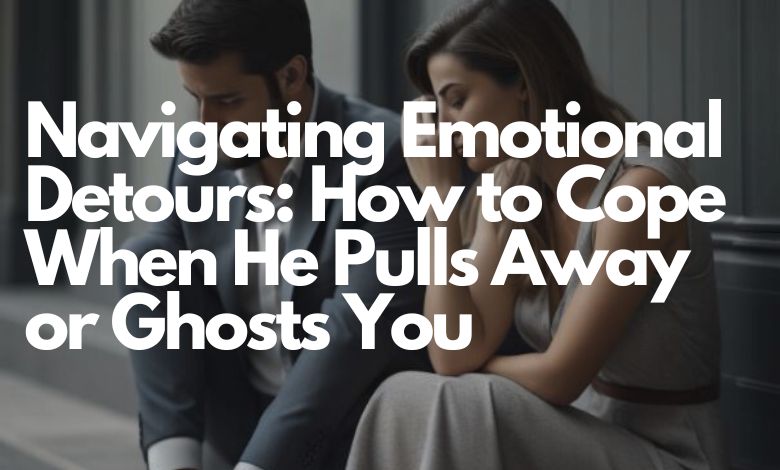Navigating Emotional Detours: How to Cope When He Pulls Away or Ghosts You
He Pulls Away or Ghosts You

Relationships can be a journey filled with twists and turns, and one of the most challenging detours is when a partner pulls away or engages in ghosting behavior. Coping with these emotional detours requires resilience, self-care, and effective communication. In this guide, we’ll explore strategies to help you navigate the complexities when he pulls away or ghosts you.
Understanding the Emotional Impact
1. The Rollercoaster of Emotions
- When a partner pulls away or ghosts, it can trigger a range of emotions, including confusion, hurt, and self-doubt. Acknowledging and understanding these feelings is the first step toward navigating the detour.
2. Identifying Triggers
- Explore any past experiences or triggers that may intensify your emotional response to being pulled away from. Understanding your triggers can provide insights into your reactions.
Strategies for Coping
1. Maintain Emotional Independence
- Cultivate a sense of emotional independence. While relationships are essential, it’s crucial to have a strong foundation within yourself. Engage in activities that bring you joy and fulfillment independent of your partner.
2. Establish Open Communication
- Initiate an open and honest conversation with your partner about their behavior. Share your feelings without blame, and encourage a dialogue to understand each other’s perspectives.
3. Set Healthy Boundaries
- Clearly define and communicate your boundaries. Establishing healthy boundaries ensures that you prioritize your well-being and emotional health.
4. Seek Support
- Reach out to friends, family, or a therapist for support. Surrounding yourself with a supportive network can provide comfort and guidance during challenging times.
5. Focus on Self-Care
- Prioritize self-care activities that nurture your physical, emotional, and mental well-being. This could include exercise, mindfulness practices, or engaging in hobbies you love.
The Importance of Reflection
1. Reflection for Personal Growth
- Reflect on the situation for personal growth. Consider how the experience can contribute to your understanding of yourself, your needs, and your expectations in relationships.
2. Assessing Relationship Compatibility
- Evaluate the compatibility of your needs and expectations with those of your partner. Sometimes, emotional detours reveal misalignments that may require further consideration.
Moving Forward with Clarity
1. Re-establishing Connection
- If open communication reveals mutual intentions to move forward, work together to rebuild connection and understanding. Establish clear expectations and commitments to prevent future detours.
2. Knowing When to Let Go
- If attempts to communicate and rebuild trust are unsuccessful, consider whether the relationship aligns with your long-term well-being. Knowing when to let go is a brave and necessary step toward personal growth.
The Journey with Resilience
Emotional detours in relationships are challenging, but they also offer opportunities for growth, reflection, and strengthened resilience. By understanding and addressing your emotions, setting healthy boundaries, seeking support, and focusing on self-care, you can navigate these detours with grace and clarity. Remember that the journey of love is unique for each individual, and learning from detours can contribute to a more fulfilling and authentic connection.
